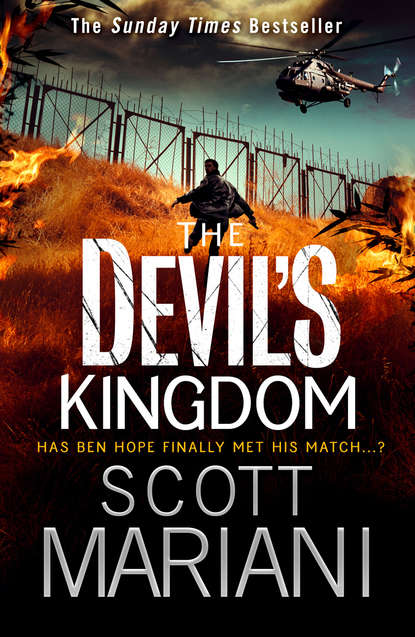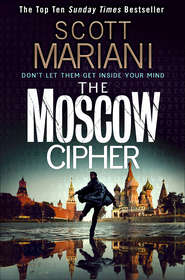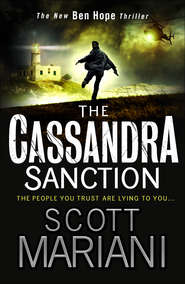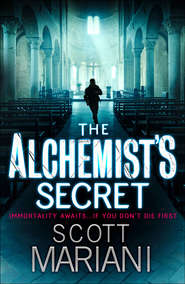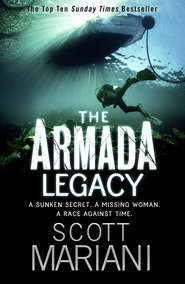По всем вопросам обращайтесь на: info@litportal.ru
(©) 2003-2024.
✖
The Devil’s Kingdom: Part 2 of the best action adventure thriller you'll read this year!
Автор
Год написания книги
2019
Настройки чтения
Размер шрифта
Высота строк
Поля
Khosa found that highly amusing, and laughed loudly. ‘Ah, soldier, you never tire of teasing me. You are a very impudent fellow. But as you know, I admire your frankness. Nobody else speaks to me the way you do. It is refreshing to have such open discussions, man to man.’ He reached forwards for the bottle and poured himself another glass of whatever was in it. After knocking down half the glass in a single gulp, he offered the bottle to Ben. ‘Would you like some Kotiko? Try it, soldier. It is made from palm trees. Very strong. I have many more bottles. Get yourself a glass from the cabinet.’
Ben glanced at the bottle and visualised himself smashing it over the edge of the table and slitting Khosa’s throat with the jagged end. ‘It’s a little early in the day for me,’ he lied.
Khosa shrugged, took another gulp, and refilled the glass once more. ‘As I was saying,’ he resumed, ‘there is much I can learn from a man of your experience. You see, I believe strongly in education. Education is something lacking here in my country, and this is very sad. There is no end to learning, not even for the wisest or strongest leader. This is why I read. Military strategists tell us, “The general who wins the battle makes many calculations in his temple before the battle is fought. The general who loses makes but few calculations beforehand.”’
Ben recognised the quotation from Sun Tzu’s Art of War. Khosa loved to show off his erudition. First it had been history and Greek mythology. Now it was ancient military tactical wisdom from the fifth century bc.
‘So you’re preparing for battle, are you?’ Ben asked.
Khosa smiled, his facial scars crinkling like horror-movie latex. ‘Oh yes. A very big battle. I have been waiting for it a long time.’
‘And it seems to me that Sun Tzu isn’t the only Chinese military expert you’ve been taking advice from lately. Used to be it was the Russians who did most of the arms trading in Africa.’
‘You are referring to the shipment you inspected this morning. I trust everything was to your satisfaction?’
‘It’s not the goods that trouble me,’ Ben said. ‘It’s their recipient, and what he plans to do with them.’
‘The Chinese are a worthwhile ally,’ Khosa said. ‘They despise us even more than we despise them. But this is acceptable. In business there is no room for friendship. I give to the yellow men what they need. In return, they will help me to achieve my goals. It is – how do you say? – a square deal. One that has suited me well. But things are soon about to change. Thanks to this, I will not need the Chinese for much longer.’
Khosa dipped his fingers into the bulging pocket of his dressing gown and took out his precious diamond. Its uncut faces caught the light from the window and reflected it into Khosa’s face, casting a diaphanous glow over his nightmare features. Dozens of millions of dollars’ worth of gemstone. Maybe hundreds of millions, for all Ben knew. And Khosa was carrying it around in his pocket as though it was a handful of change. He weighed the enormous glittering rock on his outstretched palm, gazing at it for a moment in rapt admiration.
Ben found it hard to take his own eyes off the thing. It was as big as the Chinese hand grenades he’d inspected that morning. And in its own way, it was infinitely more deadly. Ben had as little knowledge of its history or origin as he had of its value. He only knew that people had already died for it. And the dying wasn’t over yet.
‘It is not by chance that this diamond has come to me,’ Khosa said, still gazing at it. ‘To possess it was my destiny, all along. I have always known that, one day, it would find me. Now nothing will stand in my way. I will build the greatest army in all of Africa and avenge the wrong that was done to me by my brother.’
Chapter 9 (#ulink_8faaa115-ed38-510d-8f4d-db796cc4ada2)
Ben was surprised by the mention of a brother. It seemed strange that a man like this could have anything as normal as a family. That would imply that he’d been born of a human mother, and had a childhood, and once been something other than a murdering lunatic.
‘Nothing like fraternal love,’ he said to Khosa. ‘So what did he do to piss you off so much? Build a bigger tinpot militia than yours? Pin more gold medals out of a Christmas cracker on his chest? Slaughter and kidnap more people than you? That must have been tough on the ego.’
Khosa’s face darkened. For a moment, Ben thought he’d pushed him too far, and that the African was about to explode in rage, rip the .44 Magnum from its holster and start blasting. Instead, Khosa drained the last of his Kotiko, then frowned at the empty bottle. He heaved his large frame up out of the sofa. Ben thought he looked a touch unsteady from the effects of the alcohol. He watched him walk over to the drinks cabinet, bend down and take another bottle from the cupboard. Khosa twisted out the stopper as he carried the bottle back to the sofa, then threw himself heavily back down and helped himself to another brimming glass of the stuff.
It looked as though Khosa was content to extend his liquid breakfast into a liquid lunch. Nothing had been said about food – not that Ben would have eaten a bite at this man’s table, if he’d been dying of hunger.
‘My brother’s name is Louis,’ Khosa said. ‘We were close once, but he became my enemy. Louis is governor of Luhaka. Do you know Luhaka, soldier?’
‘Not intimately,’ Ben replied. ‘It’s a province that straddles the Congo River a few hundred miles from the capital. Some way north and east of here, I’d say, wherever here is.’
Khosa nodded. ‘A little more than one hundred kilometres to the north-east of us. Very good, soldier. You have an impressive knowledge of my country. But you do not know its people as well I do, or its rulers. My brother lives like a pig in his palace in Kambale, doing as he pleases. While his people starve he plays tennis in his country club, protected by armed guards. He is a terrible man.’
The tone was all confiding now, but Ben refused to let himself be drawn in. ‘Obviously not a common family trait,’ he said. ‘Considering how well you turned out.’
‘I know you think I am bad, soldier, and that you hate me very much.’
‘Where did you get that idea?’
‘But I am the nice one of the two brothers,’ Khosa said, with his scarred face distorted into a wide grin as though he found the idea highly amusing. Then the grin dropped and he looked extremely serious again. ‘My men love me, soldier. One day, all the people of this country will love me as well. This is what Louis wants for himself, but you cannot put a gun to the head of your people and expect them to love you. It does not work that way.’
This, from the same man who not so very long ago had been shooting his own men at random while in a tantrum of rage and inspiring their love for him by terrorising them with threats of dismemberment. The benevolent dictator at work.
Khosa drank down another half-glass of Kotiko. He went on, ‘Do you know how Louis tried to strengthen his people’s love for him?’ The palm liquor was beginning to tell on him now, his voice slurring a little.
‘Apart from massacring them, you mean,’ Ben said.
‘He launched a campaign against witchcraft across all of Luhaka. First he ordered his doctors to produce a strong drink made from special herbs. He said that if a normal person drank this potion, it would have no effect on them. But if it was drunk by a person with sorcerer’s powers, it would make them sick and dizzy. My brother forced many hundreds of people to drink the potion. He would not drink it himself, because it would have made anybody sick. When the people became ill, they were accused of witchcraft and thrown into prison. My brother ordered them to be burned alive. This is how wicked and corrupt he is. You see? It is as I say: a very terrible man.’
Ben stared at Khosa and wondered whether he’d ever met anybody so unaware of their own nature.
‘I have not seen him for many years, but I hear that he wears gold rings on every finger and lightens his skin with a cream. What kind of an African does this? He is jealous of me because as children I was the one with the courage to receive these marks of a warrior.’ Khosa touched the mutilated ridges on his face. ‘Louis was a coward then, and he is a coward now. I will kill him one day soon.’
Khosa finished his glass and poured another. His posture was beginning to slump and the slur in his voice had thickened a little more.
‘I think I will try a taste of that stuff, after all,’ Ben said, pointing at the bottle.
‘Be my guest, soldier. If you like it, I will give you a bottle to take back to your quarters.’
‘That’s very generous of you, General.’ Ben got up and fetched a glass from the drinks cabinet. Settling back in his armchair he poured a half-measure and took a small sip. It wasn’t Laphroaig, that was for sure. The palm wine seemed about twice as strong as Ben’s favourite single malt scotch. He put the glass down. With any luck, Khosa would just drink himself into a fatal alcoholic coma right there in front of him.
‘So that’s your plan?’ Ben asked. ‘To dethrone your brother and become governor of Luhaka Province in his place?’
‘No, no. My plans are much greater. It is not just Luhaka Province that is the problem. The Congo is like a rotten fruit. The government is bankrupt and in pieces, with no direction and no love for its unhappy people. In some places, the illiteracy rate among them is total. The biggest employer in the country is the civil service, but the workers must rely on bribery and embezzlement just to make a living.’
It sounded to Ben a lot like modern-day Britain, but he wasn’t in the mood to get into a wider discussion.
Khosa went on, ‘The poverty is terrible everywhere. Have you ever been poor? I do not think so. You are from Europe, where there is no poverty.’
‘None whatsoever,’ Ben said.
‘You cannot understand,’ Khosa insisted, emphasising his point by waving his glass at Ben. ‘Do you know what it is to live with nothing in your belly and no clothes on your back? When we were young we lived like animals in the jungle, for years. It was only through war that Louis and I were able to pull ourselves from the dirt.’
The slurring in Khosa’s voice was growing more and more noticeable. You go on like that, Ben thought. Just carry right on.
Khosa held up the diamond again, brandishing it as though it were a talisman. ‘Thanks to the fortune I will make from this stone, now we will have a chance to build a real country. Luhaka will be only the beginning. After I become governor, all the people of the Congo will come to me. They will give me their strong young men. If I had a hundred thousand fighters, I would be ready to march on Kinshasa and take my place in the Palais de la Nation. Have you ever seen the palace, soldier?’
‘I can’t say that I have,’ Ben replied.
‘The president says he has a hundred and twenty thousand soldiers, but this is a lie, like everything else he says. There are more like fifty thousand. It will be easy for me to defeat them. Of course, many of my men will die and we will have much destruction to repair afterwards. But we have a saying in my country: “Where elephants fight, the grass gets trampled.”’
At that point in his monologue, Khosa began making strange noises. Ben realised that he was singing. ‘One country, one father, one ruler: Khosa! Khosa! Khosa! That is what they will sing about me, soldier. I can already hear them.’
Another big slurp of Kotiko. ‘A strong nation I will make of this country. Like General Amin did for Uganda. How I loved that man. Under my rule, nothing will stop us from becoming a true world power. All my people will benefit from the riches under the soil. They will be happy and united once again. I will build the biggest army Africa has ever seen, and I will pay all my soldiers a hundred dollars a month. The United States president will come to me whenever I summon him. Then with the help of all Africa I will eradicate the Tutsi scum from the land and annex Rwanda as a new province of my republic.’
‘You have something personally against the Tutsi, or do you just enjoy killing people?’
‘They are treacherous cockroaches and cannot be trusted. Every true African knows this. After the civil war in Rwanda, my country was invaded by a million Tutsi who called themselves refugees when in reality they only wanted to take over all of Zaire. Louis and I, we hunted them. Our death squad killed many, many, many. We called it Operation Insecticide. Sometimes we killed a hundred in a day. We used guns, knives, or ropes to strangle them. Women, children, all cockroaches just the same. But however many we killed, more kept coming.’
Khosa lapsed into a long silence, as if he were replaying the memory of those times inside his head. He guzzled another glassful of Kotiko, refilled it twice more, and knocked it back each time. The second bottle was almost empty now. He closed his eyes, swayed a little, and for a moment Ben thought he would keel over sideways. Khosa slowly opened his eyes, pupils unfocused and his vision clearly swimming. His gaze searched for Ben, found him, and fixed him with a baleful expression.





